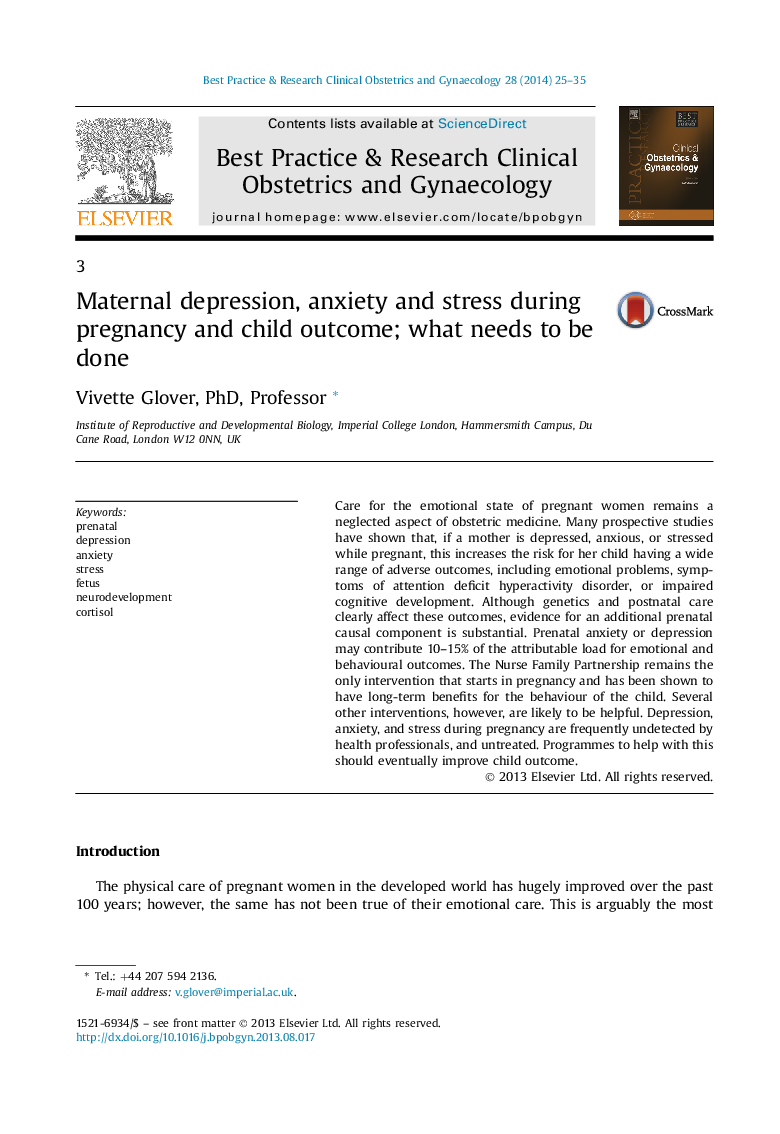| Article ID | Journal | Published Year | Pages | File Type |
|---|---|---|---|---|
| 6169185 | Best Practice & Research Clinical Obstetrics & Gynaecology | 2014 | 11 Pages |
Care for the emotional state of pregnant women remains a neglected aspect of obstetric medicine. Many prospective studies have shown that, if a mother is depressed, anxious, or stressed while pregnant, this increases the risk for her child having a wide range of adverse outcomes, including emotional problems, symptoms of attention deficit hyperactivity disorder, or impaired cognitive development. Although genetics and postnatal care clearly affect these outcomes, evidence for an additional prenatal causal component is substantial. Prenatal anxiety or depression may contribute 10-15% of the attributable load for emotional and behavioural outcomes. The Nurse Family Partnership remains the only intervention that starts in pregnancy and has been shown to have long-term benefits for the behaviour of the child. Several other interventions, however, are likely to be helpful. Depression, anxiety, and stress during pregnancy are frequently undetected by health professionals, and untreated. Programmes to help with this should eventually improve child outcome.
